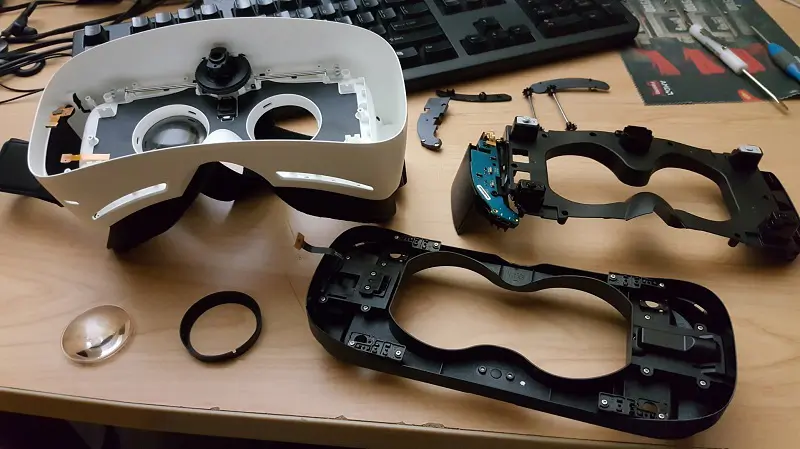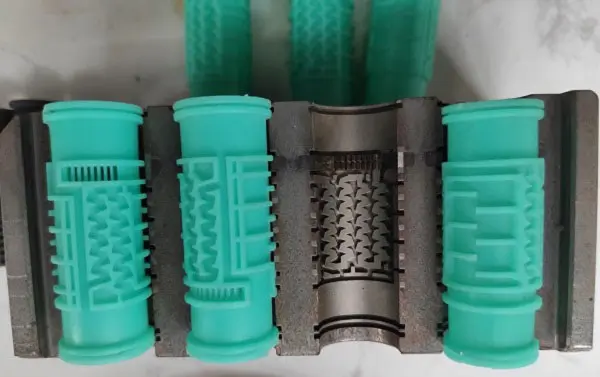M2 customized manufacturing services for intelligent robots
Customized manufacturing services provided by M2 Prototype is widely used in the production of intelligent robots by providing tailored solutions to meet the specific needs of a particular application or use case.
How our services been used in intelligent robots production?
- Customized Parts Manufacturing: Intelligent robots require a range of specialized components, including motors, sensors, and controllers. Customized manufacturing services can produce these parts to meet the specific requirements of intelligent robots, including size, shape, and performance specifications.
- Precision Machining: Precision machining is often required to produce the complex shapes and geometries of the components used in intelligent robots. Customized manufacturing services can provide precision machining services to ensure that the components are produced to the required tolerances.
- Prototyping: Prototyping is an important stage in the development of intelligent robots, allowing designers to test and refine their designs before moving to full-scale production. Customized manufacturing services can produce prototypes quickly and efficiently, allowing designers to iterate and refine their designs more rapidly.
- Assembly: The assembly of intelligent robots requires a high level of precision and accuracy to ensure that the components are correctly aligned and function properly. Customized manufacturing services can provide assembly services to ensure that the robots are assembled to the required standards.
Some examples of intelligent robots that use M2 customized manufacturing services.
- Surgical Robots: Surgical robots are used in minimally invasive surgeries to increase precision and reduce the risk of complications. These robots require specialized components, such as precision motors and sensors, that are produced using customized manufacturing services to meet the specific requirements of the application.
- Industrial Robots: Industrial robots are used in manufacturing and assembly lines to automate repetitive tasks and increase efficiency. These robots require specialized components, such as high-precision bearings and controllers, that are produced using customized manufacturing services to ensure that they can withstand the harsh operating environment.
- Service Robots: Service robots are used in a variety of applications, such as home automation, elder care, and hospitality. These robots require customized manufacturing services to produce components that are optimized for performance, reliability, and safety.
- Agricultural Robots: Agricultural robots are used in farming to automate tasks such as planting, harvesting, and irrigation. These robots require specialized components, such as sensors and actuators, that are produced using customized manufacturing services to meet the specific requirements of the application.
Challenges in producing customized components for intelligent robots?
- Complexity: Intelligent robots often require very complex components, such as precision motors, sensors, and controllers. Producing these components can be challenging, as they may require advanced manufacturing techniques and specialized equipment.
- Precision: Intelligent robots require components that are highly precise and accurate, with tolerances that are often measured in microns. Achieving this level of precision can be difficult, as even small variations can have a significant impact on the performance of the robot.
- Material Selection: The materials used in the production of customized components can have a significant impact on the performance and durability of the robot. Selecting the right materials requires a deep understanding of the application and the operating environment of the robot.
- Cost: Producing customized components can be more expensive than using off-the-shelf components, as it often requires specialized equipment, processes, and expertise. Manufacturers must carefully balance the benefits of customization with the additional cost of production.
- Time to Market: Producing customized components can take longer than using off-the-shelf components, as it often requires additional design, testing, and validation. This can delay the time to market for the robot and increase development costs.
M2 Prototype use specialized equipments and processes to achieve the required level of precision and performance for customized intelligent robots comnponents.
- Computer Numerical Control (CNC) Machines: CNC machines use computer-controlled tools to produce complex shapes and geometries with high precision. They are often used in the production of customized parts for intelligent robots, such as precision gears and bearings.
- Injection Molding Machines: Injection molding machines use high-pressure injection of molten plastic to produce complex parts with high precision and accuracy. They are often used in the production of plastic components for intelligent robots, such as robot arms and grippers.
- 3D Printing: 3D printing uses additive manufacturing techniques to produce parts layer-by-layer using a range of materials, including plastics, metals, and ceramics. 3D printing is often used in the prototyping stage of production to quickly produce parts for testing and validation.
- Laser Cutting Machines: Laser cutting machines use a high-powered laser to cut and shape materials with high precision and accuracy. They are often used in the production of metal parts for intelligent robots, such as robot frames and chassis.
- Surface Mount Technology (SMT) Machines: SMT machines use automated processes to place and solder surface-mount components onto printed circuit boards (PCBs). They are often used in the production of electronic components for intelligent robots, such as controllers and sensors.
Cnc machining for smart wearable devices is also a regular field that M2 serves.
Contact Us










